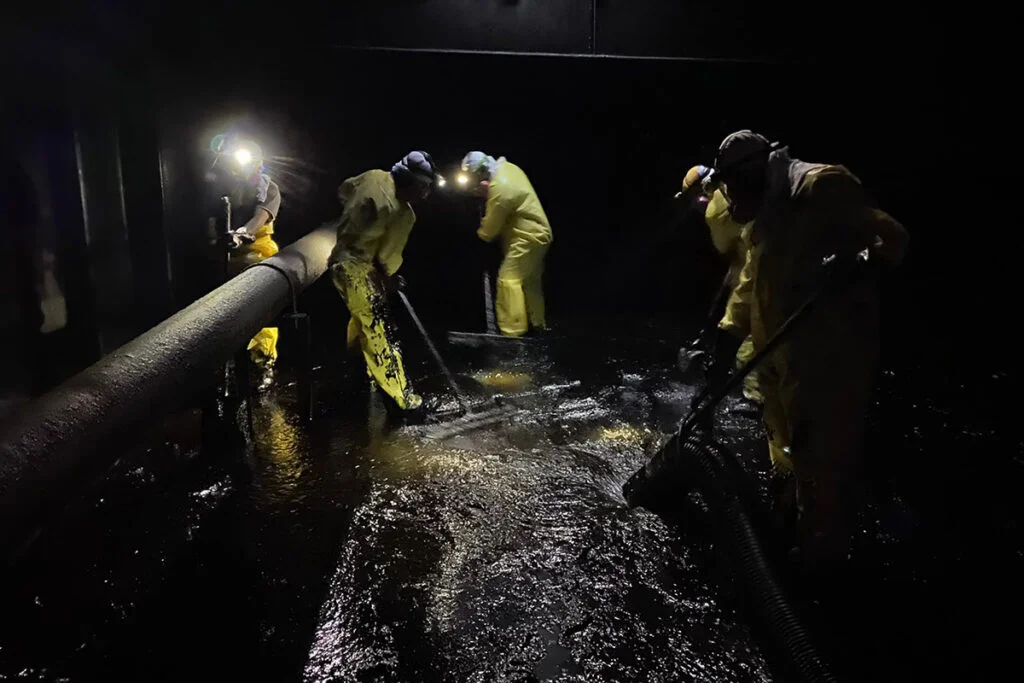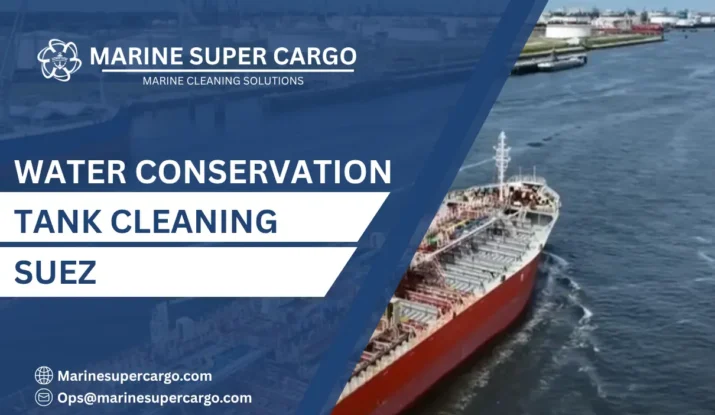Implementing Water Conservation Tank Cleaning Suez for Sustainable Operations
The Suez Canal region faces unique challenges regarding water resources, making water conservation tank cleaning Suez practices essential for environmentally responsible maritime operations. Marine Super Cargo champions sustainable methodologies that minimize freshwater consumption while maintaining the highest cleanliness standards required by international regulations.
MARPOL Guidelines and Water Management Standards
The International Maritime Organization (IMO) established frameworks through MARPOL that address both pollution prevention and resource efficiency. While MARPOL primarily focuses on preventing discharge of harmful substances, emerging guidelines encourage water conservation as part of comprehensive environmental stewardship.
Documentation of conservation efforts demonstrates environmental responsibility during audits. Recording water consumption per operation establishes baseline metrics and tracks improvement. These records prove valuable when demonstrating corporate sustainability commitments to stakeholders and regulatory authorities.
Advanced Technologies for Reduced Water Consumption
Water conservation tank cleaning Suez leverages multiple technological innovations. High-pressure cleaning systems achieve superior results using significantly less water than traditional methods. These systems operate at pressures exceeding 1,500 bar, breaking down residues efficiently with minimal water volume.
Marine Super Cargo invests continuously in cutting-edge equipment that supports water conservation tank cleaning Suez objectives. Our technology partnerships ensure access to the most efficient systems available.

Operational Techniques Maximizing Water Efficiency
Beyond equipment, operational practices significantly impact water consumption. Pre-cleaning procedures remove maximum residue before introducing water. Mechanical scraping, vacuum systems, and inert gas purging reduce contaminant volumes requiring water-based removal.
Chemical selection impacts water requirements. Modern biodegradable cleaning agents work effectively at lower concentrations, reducing both chemical and water usage. Proper chemical application ensures maximum effectiveness from minimal water volumes.
Water Recovery and Recycling Systems
Water conservation tank cleaning Suez programs incorporate sophisticated recovery infrastructure. Collection systems capture all discharge from cleaning operations, directing water through multi-stage treatment processes. Primary separation removes oil and solid contaminants, while secondary filtration achieves reuse standards.
Related services include oily water treatment facilities and port reception facilities that complement water conservation efforts through comprehensive waste management.
Training and Procedural Excellence
Successful water conservation tank cleaning Suez requires trained personnel understanding conservation principles. Crew training emphasizes optimal equipment operation, proper chemical application, and waste minimization techniques. Skilled operators achieve superior results while minimizing resource consumption.
Continuous improvement programs identify further conservation opportunities. Regular review of consumption data reveals trends and optimization potential. Feedback from cleaning crews provides practical insights for procedural refinements.
Economic and Environmental Benefits
Water conservation tank cleaning Suez delivers measurable advantages beyond environmental stewardship. Reduced water consumption directly lowers operational costs, particularly significant given regional water scarcity and associated pricing. Vessels conducting multiple cleanings annually realize substantial savings.
Marine Super Cargo helps operators achieve these combined benefits through expertly implemented water conservation tank cleaning Suez programs tailored to specific vessel requirements.
Regulatory Compliance and Future Trends
Current regulations increasingly emphasize resource efficiency alongside pollution prevention. Future IMO guidelines may establish specific water consumption benchmarks for tank cleaning operations. Proactive adoption of conservation practices positions operators ahead of regulatory evolution.
Industry collaboration advances conservation technology development. Shared best practices and standardized measurement methodologies enable meaningful performance comparisons. Marine Super Cargo actively participates in industry forums promoting water conservation tank cleaning Suez innovation and adoption.
Frequently Asked Questions
Q1: Does water conservation compromise tank cleaning quality?
No. Advanced high-pressure systems and optimized procedures achieve superior cleanliness using significantly less water than traditional methods while meeting all inspection standards.
Q2: How much water can conservation practices save?
Properly implemented programs typically reduce consumption by 40-60% compared to conventional methods, with actual savings depending on tank size and cargo type.
Q3: Are recycled water systems expensive to implement?
Initial investment varies, but operational savings typically provide return on investment within 18-24 months through reduced water costs and faster cleaning cycles.
Q4: What quality standards apply to recycled cleaning water?
Recycled water must meet specifications for intended cleaning phases, with fresh water reserved for final rinses ensuring cargo space meets contamination limits.
Q5: Do conservation practices require special crew training?
Yes. Effective water conservation requires personnel training on equipment operation, optimal chemical use, and staged cleaning procedures for maximum efficiency.


